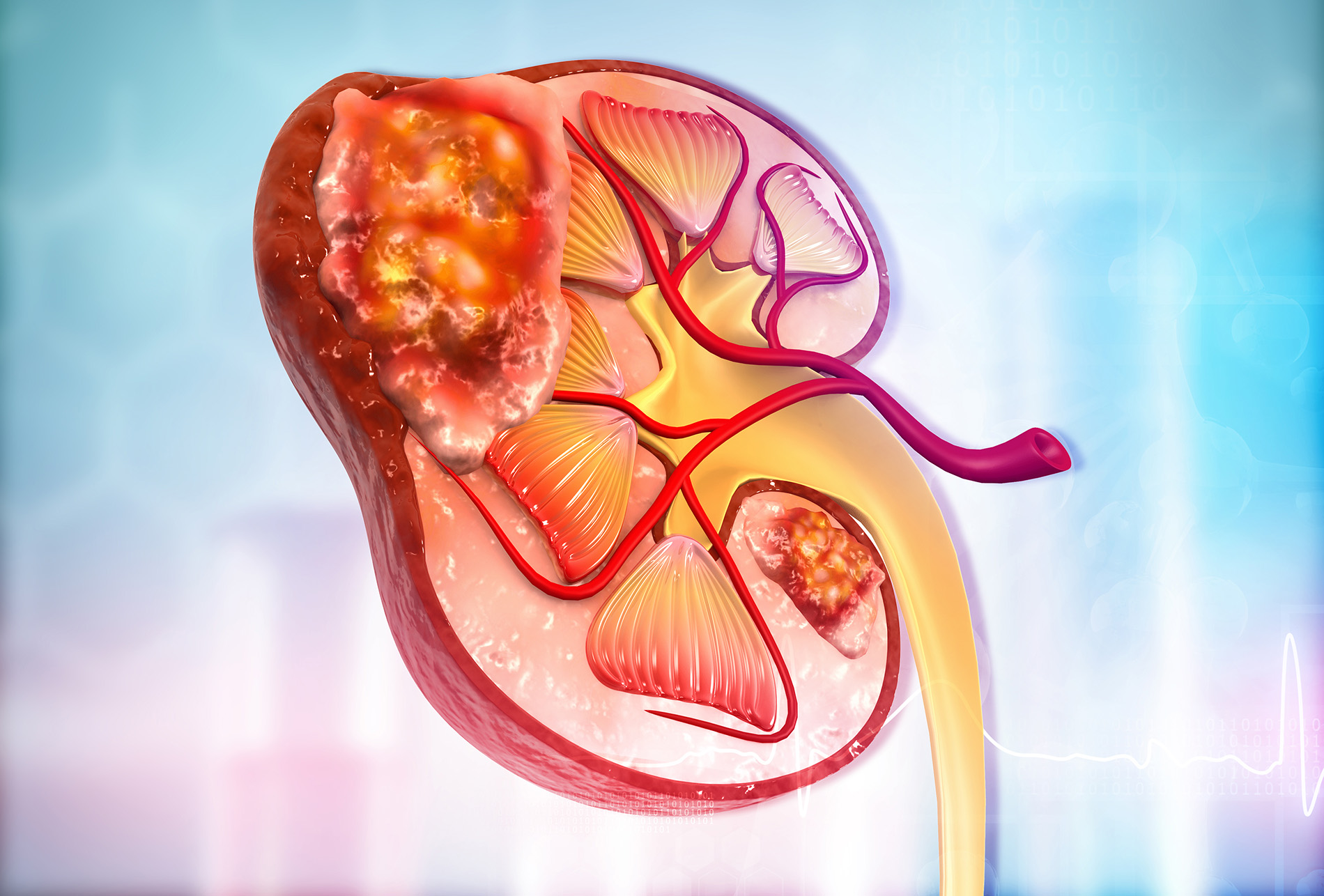The kidneys are two bean-shaped organs on either side of the spine, partially protected under the rib cage. They filter blood and eliminate excess fluid and waste in the urine. The risk of kidney cancer is about 1 to 2% throughout one's lifetime. It is more common in men and people of African American or Native-American descent. Smoking and obesity are potentially modifiable traits that increase one's risk of developing kidney cancer. Some kidney cancers result from specific genes passed down within one's family, but most are spontaneous.
Most kidney cancers are diagnosed incidentally (by chance) due to an imaging study performed for another reason. Less commonly, people may notice an abdominal mass, pain in the flank, or blood in the urine. Two-thirds of all new kidney cancers are localized to the kidney at diagnosis, and 93% of patients with localized kidney cancer are alive five years after diagnosis. Some kidney masses are not cancerous (like cysts or other benign tumors), but solid and larger masses are more likely to be malignant.
The treatment for localized kidney cancer is usually surgical removal of either just the tumor (partial nephrectomy) or the entire affected kidney (radical nephrectomy). Surgeons typically perform these surgeries with a minimally invasive approach using the da Vinci robotic system or laparoscopic surgical instruments. Many kidney masses smaller than 7 centimeters (about the size of a peach) can be treated with partial nephrectomy. Select patients with masses smaller than 3 centimeters (about the size of a strawberry) may be candidates for active surveillance (where the tumor is followed closely over time with imaging studies) or ablation (a minimally invasive technique that destroys the tumor through freezing or over-heating).
After a kidney cancer is removed, patients receive follow-up care for at least five years, including chest and abdominal imaging. Of patients who have a recurrence of their cancer, more than half experience the recurrence within two years of their first diagnosis. Recurrent cancer can be surgically removed (if localized) or treated with different systemic (intravenous or orally administered) medications.
Learn more about kidney cancer at these websites:
Lexington Urology has a team of highly trained uro-oncologists skilled at treating kidney and other urologic cancers.
 |
 |
 |
 |
| Terence Chapman, MD | Lee A. Hugar, MD | Goran Rac, MD | T. Brian Willard, MD |



![Conelly_Jania 1900x1267[44] Portrait of Jania Connelly in pink dress](https://blog.lexmed.com/images/librariesprovider80/blog-post-featured-images/conelly_jania-1900x1267-44.jpg?sfvrsn=adef6e0a_0)


Leave a comment